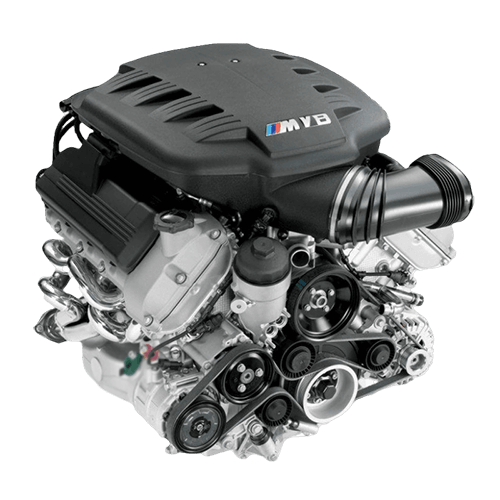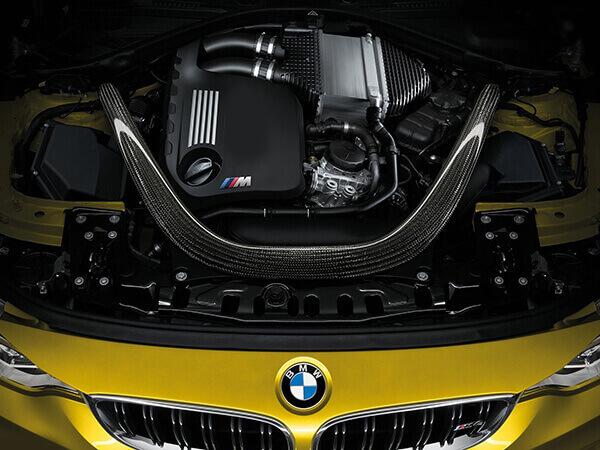Why Does Your BMW Engine Make Unusual Noises?
The roar of a BMW engine is unmistakably iconic. It’s a symphony of engineering, performance, and power. However, every so often, BMW owners might hear a discordant note amidst this melody – the BMW Engine Ticking Noise. This sound can stir concerns and raise questions. BMW Engine Noise encompasses a spectrum of sounds that a BMW might produce during its operation. While many of these sounds are typical markers of the engine’s performance, others, like the BMW Knocking Noise Engine or the BMW Rattling Noise, might indicate underlying issues.
BMW Engine Ticking Noise is a distinct, rhythmic sound that emerges from the engine. Unlike the BMW Fake Engine Noise, which is artificially produced for auditory pleasure, the ticking noise is an unplanned sound, often indicating a specific set of issues within the engine. Several factors can give rise to the BMW Engine Ticking Noise. It could be due to valve lifter wear, low engine oil levels, or even timing chain slack. Sometimes, it might be associated with the BMW Engine Rattling Noise, which typically signals loose or worn-out components.
Apart from the audible ticking, there might be other symptoms accompanying the BMW Engine Ticking Noise. This could include a reduction in engine performance, rough idling, or even an amplified noise like the BMW Engine Noise When Accelerating. Ignoring the BMW Engine Ticking Noise is not merely about enduring an annoying sound. This noise could be a harbinger of more significant, impending engine problems. Addressing it promptly not only ensures the longevity of the engine but also safeguards the performance and reliability that BMWs are renowned for.
How to Diagnose BMW Engine Ticking Noise?
BMW, a symbol of luxury and top-tier engineering, ensures an unparalleled driving experience. However, like any complex machine, even a BMW isn’t immune to the occasional hiccup. One such concern that has raised eyebrows is the BMW Engine Ticking Noise. But how do you diagnose this sound? Let’s navigate through the process.
- Visual Inspection: Starting with the simplest approach often yields surprising results. Open up the hood and conduct a visual inspection. Look for any obvious signs of wear, damage, or loose components. Sometimes, the BMW Engine Rattling Noise or the BMW Knocking Noise Engine can be a result of something as apparent as a loose belt or misplaced component.
- Test Drive: Taking your BMW for a spin can be quite revealing. As you drive, pay attention to when and how the BMW Engine Noise manifests. Does it intensify with acceleration, leading to a pronounced BMW Engine Noise When Accelerating? Or is it more rhythmic, resembling the BMW Engine Ticking Noise? Also, be observant of any other sounds that accompany it, like the BMW Rattling Noise, which might provide additional clues.
- Mechanical Inspection: While the initial steps might pinpoint some issues, the intricate design of the BMW engine often requires a deeper dive. Here’s where a thorough mechanical inspection comes in handy. A trained mechanic can differentiate between the natural BMW Fake Engine Noise and the concerning BMW Engine Ticking Noise. Using specialized tools and their expertise, they can identify the root cause, be it internal wear, lubrication issues, or component malfunction.
Common Causes of BMW Engine Ticking Noise
BMW, a beacon of automotive excellence, is known for its impeccable engineering and performance. Yet, even the finest machines have moments of discord. Among the various sounds that a BMW might produce, the BMW Engine Ticking Noise stands out, often signaling specific underlying issues. Let’s explore the common culprits behind this distinctive sound.
- Worn or Damaged Hydraulic Valve Lifters: Hydraulic valve lifters play a crucial role in maintaining optimal valve clearance. When they wear out or get damaged, they can produce a distinct ticking sound, particularly evident during a cold start. This wear might even intensify, leading to a BMW Knocking Noise Engine over time.
- Worn or Damaged Camshafts: The camshaft, essential for valve operation, can be a source of the BMW Engine Noise when it begins to wear or sustain damage. As it loses its precision, it might produce a ticking sound, especially evident during acceleration or at higher RPMs.
- Worn or Damaged Cam Followers: Cam followers act as a bridge between the camshaft and the valves. A worn or damaged cam follower can lead to the BMW Engine Rattling Noise, disrupting the seamless operation and harmony of the engine.
- Worn or Damaged Timing Chain: The timing chain ensures synchronized engine operation. When it wears out or gets damaged, it can cause the BMW Engine Ticking Noise. This is often accompanied by the BMW Engine Noise When Accelerating, signaling a need for immediate attention.
- Worn or Damaged Timing Chain Tensioner: A slack in the timing chain can lead to the BMW Rattling Noise. Often, this slack is due to a worn or damaged timing chain tensioner. Addressing this component can mitigate the ticking and rattling sounds effectively.
- Low Oil Level & Dirty Oil: Oil, the lifeblood of any engine, ensures smooth operation. A low oil level or dirty oil can lead to BMW Engine Noise, particularly the ticking sound. It’s essential to maintain optimal oil levels and ensure regular oil changes to prevent such issues.
- Clogged Oil Filter: Lastly, a clogged oil filter can restrict oil flow, depriving engine components of essential lubrication. This can result in the BMW Engine Ticking Noise, emphasizing the importance of routine filter checks and replacements.
How to Fix BMW Engine Ticking Noise?
Driving a BMW is synonymous with enjoying a premium, powerful experience. But when this is disrupted by the BMW Engine Ticking Noise, it’s time to address the issue head-on. Here’s a detailed guide on restoring the harmonious symphony of your BMW engine.
- Replace Worn or Damaged Hydraulic Valve Lifters: The rhythmic ticking, often noticeable during a cold start, might be a signal from the hydraulic valve lifters. If these are worn or damaged, they can lead to the BMW Knocking Noise Engine. Replacing them promptly can prevent more severe engine complications and restore the engine’s smooth operation.
- Replace Worn or Damaged Camshafts: A worn or damaged camshaft can be the culprit behind the BMW Engine Noise, especially during acceleration. Opting for a timely replacement ensures that the valves operate flawlessly, keeping the BMW Engine Noise When Accelerating at bay.
- Replace Worn or Damaged Cam Followers: Cam followers act as intermediaries in the valve operation. When they wear out or get damaged, the BMW Engine Rattling Noise can emerge, sometimes mistaken for BMW differential noise due to similar clunking sounds under load. Replacing these components not only silences the rattling but also ensures optimal valve function.
- Replace Worn or Damaged Timing Chain: The timing chain, crucial for synchronized engine function, can produce the BMW Engine Ticking Noise when it’s nearing its end. A replacement is essential, as a faulty chain can lead to severe engine issues, including the more pronounced BMW Engine Rattling Noise.
- Replace Worn or Damaged Timing Chain Tensioner: A slack in the timing chain often points to a worn or damaged tensioner. Addressing this component by replacing it can mitigate both the BMW Engine Ticking Noise and the more aggressive BMW Rattling Noise.
- Add Oil: Sometimes, the simplest solutions are the most effective. A low oil level can be the reason behind the BMW Engine Noise. Ensuring that the oil level is within the recommended range can be a quick fix to this problem.
- Change Oil: Dirty or degraded oil can lead to the BMW Engine Ticking Noise. Regular oil changes, using the recommended grade and type, can ensure that the engine remains well-lubricated and operates without producing unwanted ticking.
- Change Oil Filter: A clogged oil filter can restrict the oil flow, leading to the BMW Fake Engine Noise or other related sounds. Regularly changing the oil filter ensures optimal oil flow, keeping engine components well-lubricated and noise-free.
How to Prevent BMW Engine Ticking Noise?
BMW owners take pride in their vehicles, reveling in the unmatched performance and luxury. However, the occasional BMW Engine Ticking Noise can disrupt this harmony. Rather than merely addressing the issue post-manifestation, why not prevent it? Here’s how:
- Regular Maintenance: A proactive approach is always the best defense against any automotive concerns, including the dreaded BMW Engine Ticking Noise. Regular check-ups can catch potential problems before they escalate into more significant issues like the BMW Knocking Noise Engine or the BMW Engine Rattling Noise. Regular maintenance ensures all engine components are in top shape, preventing the onset of unwanted sounds.
- Use High-Quality Oil: The oil is the lifeblood of your engine. Investing in high-quality oil can make a significant difference in preventing BMW Engine Noise. Premium oil not only provides better lubrication but also has superior additives that can combat wear and tear, ensuring smoother and quieter engine operation.
- Change Oil and Oil Filter Regularly: While using high-quality oil is crucial, its efficacy diminishes over time. To prevent the BMW Engine Noise When Accelerating or the unsettling BMW Fake Engine Noise, it’s essential to change the oil and oil filter at recommended intervals. Fresh oil ensures optimal lubrication, while a new filter guarantees unrestricted flow, both crucial for silent engine operation.
- Avoid Driving on Low Oil Levels: Low oil levels can be a primary contributor to the BMW Engine Rattling Noise. Running your BMW on inadequate oil levels can cause undue friction between engine components, leading to ticking or rattling noises. Regularly checking the oil level and ensuring it’s within the recommended range can keep the BMW Engine Ticking Noise at bay.

Navigating The BMW Engine Noises
As we rev down our exploration into the intricate world of BMW Engine Noise, it’s time to reflect on the journey and the insights gained. Throughout this comprehensive dive, we’ve unearthed the intricacies behind the BMW Engine Ticking Noise, understanding its nature, causes, and effective measures for diagnosis, fixing, and prevention. We’ve also touched upon other concerning sounds like the BMW Knocking Noise Engine, BMW Rattling Noise, and the BMW Engine Noise When accelerating, offering solutions and insights.
Proactivity is the key. Regular maintenance, high-quality oil usage, timely oil changes, and ensuring optimal oil levels can keep most engine noises, including the BMW N20 Engine Noise and BMW X5 Engine Knocking Noise, at bay. Moreover, being attuned to your car’s needs, especially for models like the BMW X3, BMW X5, BMW X1, and the BMW 3 Series, can make a world of difference in preserving the harmonious symphony of the BMW engine.
For those who wish to delve deeper, several specialized forums and technical manuals focus on specific engine noises related to various models, be it the BMW X1 Engine Noise or the recurrent BMW N20 Engine Noise. Engaging with the BMW community, visiting authorized service centers, and leveraging online platforms dedicated to BMW enthusiasts will provide a wealth of information and shared experiences.
In wrapping up, remember that every BMW, whether it’s the roaring BMW 3 Series Engine Noise or the rhythmic BMW Engine Ticking Noise, tells a story. By understanding, diagnosing, and addressing these sounds timely, you ensure that your BMW’s tale is one of power, luxury, and uninterrupted performance. Contact BMW Repair Dubai Today. Stay attuned, drive with passion, and let the BMW experience remain unparalleled.

